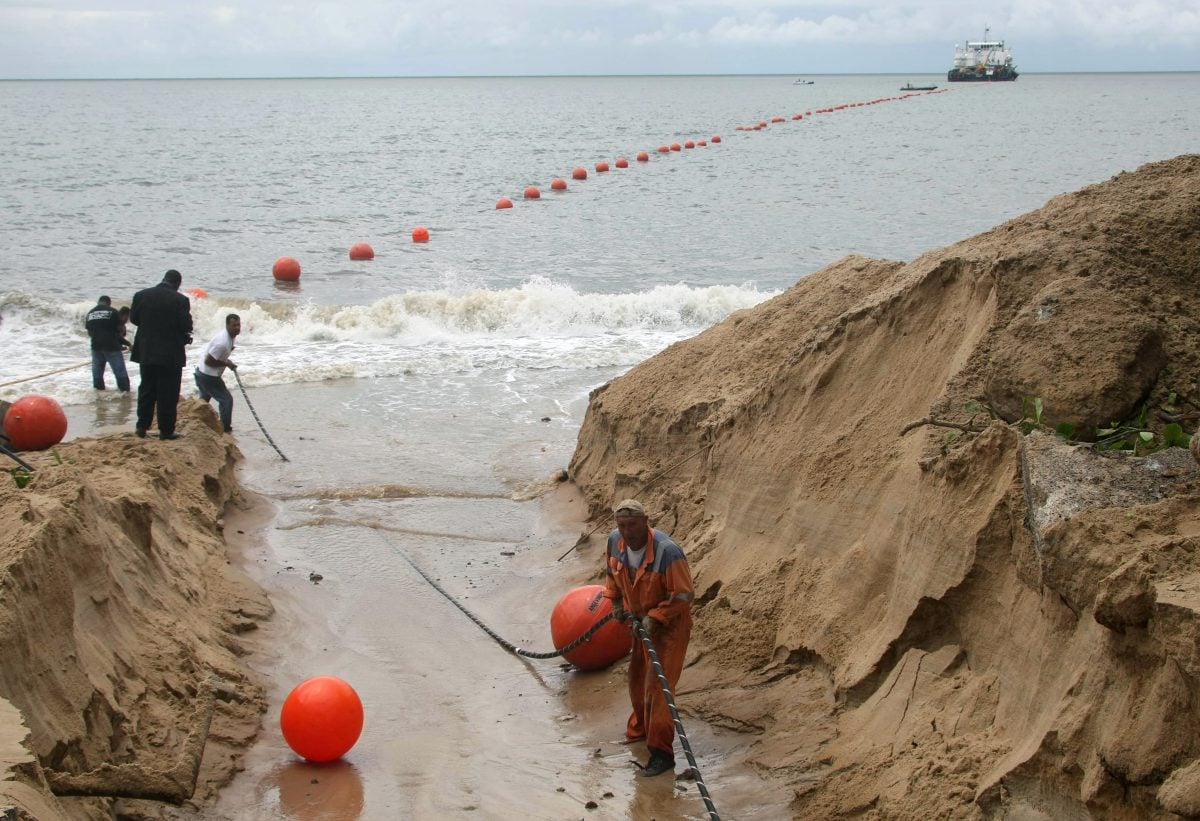Damage to undersea fibreoptic cables off the West African coast follows suspected Houthi attacks on cables in the Red Sea. Several countries in West Africa have been grappling with large-scale internet outages since last Thursday, following damage to several undersea fibreoptic cables. Côte d’Ivoire, Senegal, Nigeria and Ghana are among the worst-affected, although internet users as far away as South Africa have also been hit.
The incident coincides with a spate of apparent sabotage incidents affecting cables on the opposite side of the continent. Yemen-based Houthi rebels are suspected of severing undersea fibreoptic cables in the Red Sea late last month, affecting internet traffic between East Africa, Asia and Europe.
The cause of the damage to the West African cables has not been confirmed. Several different cables are affected, including the West Africa Cable System (WACS), the Africa Coast to Europe (ACE), MainOne, and SAT3.
MainOne, a Nigerian company, said in a statement that the disruption was “most probably due to environmental factors such as landslides and earthquakes”. It claimed that it could rule out any kind of “human activity” as a cause of the fault, due to the cable lying on a 3km-deep seabed at the point at which the damage occurred.
Economic impacts from the outage are likely to be considerable. Banks were forced to close in several countries, including Nigeria, as they were unable to process transactions. Mobile internet users have also reported slow connection speeds, with knock-on impacts for mobile money providers.
Preliminary estimates suggest that fully repairing the damage will take around five weeks, taking into account the two weeks needed for repair vessels to reach the area where the cables have been severed.
Vulnerability
Undersea telecommunication cables play a critical role in the global economy. Improvements in fibreoptic cable connections across Africa over the last decade have helped internet-based businesses flourish, enabling the growth of tech ecosystems in many countries.
However, these connections are extremely fragile and damage to cables is relatively common. As well as deliberate sabotage, cables can be severed by undersea earthquakes, landslides or volcanic eruptions. Ships dragging their anchors along the seabed are another common culprit for faults. Even shark bites can cause serious damage.
To varying degrees, African countries are particularly vulnerable due to the relatively low density of cable connections to many countries. Several major cable systems extend around large sections of African continent – Google’s Equiano cable, for example, which runs from Portugal to South Africa, was completed in 2022 – but most of these systems have spurs that create ‘landing points’ with only a handful of countries.
Sierra Leone, Liberia and Mauritania, for example, are each connected by a single cable, meaning that any damage can cause a total internet blackout. South Africa, on the other hand, has multiple connections, so that telecom operators can reroute traffic onto other cables in the event of an outage.
Telecoms operator MTN said in a statement that it was making progress in restoring services in West Africa and, in the longer term, is seeking to improve the resilience of its networks.
“We are working with the cable consortiums and partners to enhance interconnection along both the west and east coasts, with further interconnections between WACS and Equiano, and the introduction of the end-to-end connection between WACS on the west coast and EASSy on the east coast,” it said.
An alternative to fibreoptic cables is to use satellites to deliver internet services. Satellite internet, however, generally delivers slower connections at great expense and efforts to scale-up this technology are still nascent. Elon Musk’s Starlink internet service, for example, is currently available in only a handful of African countries, including Eswatini, Kenya, Malawi, Mozambique, Nigeria, Rwanda and Zambia. By Ben Payton, African Business













